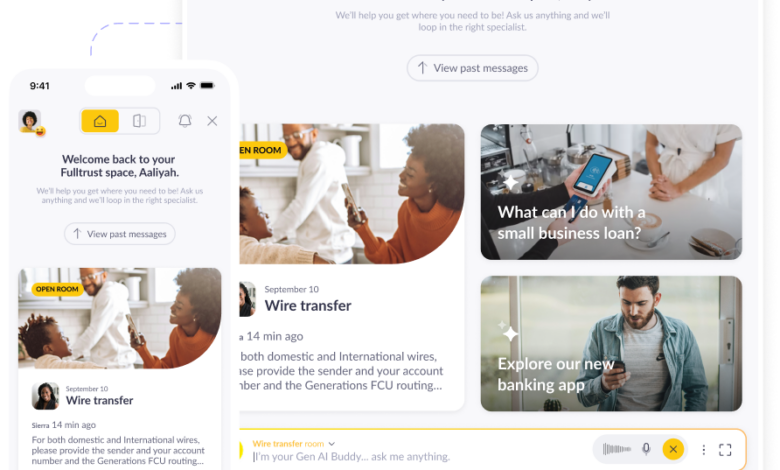
Organizations are racing to integrate AI into their CX strategies. From conversational AI tools to fully digitized contact centers, the goal is clear: Deliver faster service, offer greater personalization and build stronger customer relationships.
Yet, as AI spending accelerates, customer satisfaction is falling behind. In 2024, Forrester reported that CX quality hit an all-time low, and 71% of consumers surveyed by Zingly said dealing with customer service is as stressful as (or more stressful than) their original issue. At the same time, only 8.3% of organizations saw a positive return on AI investments.
Companies face a CX paradox: The pursuit of AI-driven efficiency in CX can inadvertently sacrifice the very empathy and personalization customers crave. The problem isn’t AI itself; it’s how it’s being applied.
In the rush to adopt AI, many organizations have prioritized automation over genuine service enhancement. Instead of seamless support, customers are often met with frustrating interactions, generic responses and a lack of human touch. According to KPMG, 52% of consumers now worry they won’t be able to reach a human when they need one.
The right AI strategy can enhance CX, boost revenue and strengthen loyalty. The secret is finding the delicate balance between automation and human connection.
AI as a CX Differentiator
An AI-powered, next-gen contact center should be built not just for speed, but for relevance and connection.
Efficiency matters, but empathy drives loyalty. KPMG reports that personalization is the top driver of customer loyalty (20.2%), while integrity ranks highest for influencing Net Promoter Scores (18.8%). These are not just performance metrics, they are trust signals. Conversational AI systems that can recognize sentiment, recall prior interactions and escalate when needed are vital in helping customers feel understood and valued.
The key is balance: Using AI to scale intelligently while ensuring human insight remains at the heart of the experience. AI should be a co-pilot — offloading repetitive tasks, surfacing insights and supporting real-time decisions. This kind of augmentation boosts first-contact resolution, reduces agent burnout and improves job satisfaction.
With the right approach, AI can elevate CX to a true differentiator in competitive markets. But this requires organizations to shift from automation-at-scale to augmentation-with-purpose.
- From Rigid Automation to Agentic AI – Scripted chatbots may handle simple queries, but they fall short in dynamic, real-world situations. Agentic AI understands context, adapts in real time, drives processes forward and escalates appropriately. It acts as an intelligent assistant — not a replacement — for human agents, offering support when needed and integrating seamlessly into the human workflow.
- Persistent Customer Memory and Personalization – Customers want continuity in their experiences. Yet many CX systems start from scratch at every touchpoint. According to Zingly’s research, 77% of customers expect companies to remember their past interactions. Digital contact centers should leverage persistent memory to personalize conversations and ensure that every interaction builds on the last.
- AI and Human Collaboration, Not Competition – The most effective AI tools don’t replace agents, they empower them. By handling repetitive tasks, providing relevant data in real time and enabling faster decision-making, AI enhances human agents’ capacity to build personal connections. Organizations that embrace this collaborative model will deliver experiences that are faster, smarter and more emotionally intelligent.
Designing CX with Intention
To unlock AI’s full potential, companies must stop designing from the inside out. CX strategy should reflect what customers truly want: consistency, context and care. Strategic AI use begins by integrating systems and insights that enable thoughtful, personalized interactions and extends to how those tools evolve with ongoing feedback. Key elements should include:
- Omnichannel continuity – Allowing customers to move across chat, phone, email, and apps without repeating themselves.
- Unified data – Breaking down silos between systems of record, engagement and action to offer a holistic customer view.
- Emotion-aware automation – Using AI to detect frustration or urgency and escalate to humans when needed.
- Continuous learning – Refining AI systems through real-time data and customer feedback loops.
These are the building blocks of a modern Digital Contact Center—one that doesn’t just process requests, but anticipates needs and enhances the customer relationship over time.
A Call to Action for Business Leaders
Today’s consumers want instant answers but also expect personalization, empathy and accountability. Delivering that combination is now essential.
McKinsey projects $4.4 trillion in productivity gains from corporate AI use cases. And 87% of executives expect AI to contribute to revenue growth in the next three years. Yet the gap between expectation and execution remains wide. Closing it requires alignment: between AI tools, human talent and customer trust.
Transformational CX doesn’t come from technology alone. It’s the result of strategic integration, ethical deployment and a culture committed to making customers feel seen and supported. AI is not the destination — it’s the accelerator.
Organizations looking to lead the next era of CX should focus on:
- Designing experiences that prioritize personalization, not just efficiency.
- Equipping agents with AI that enhances their performance and judgment.
- Replacing disconnected tools with unified platforms that deliver continuity.
- Measuring success by loyalty, trust and long-term value — not volume metrics.
AI is already shaping how customers perceive, interact with and judge the brands they choose to support. The question now is not whether AI is being used, but whether it’s being used to improve or worsen CX.



